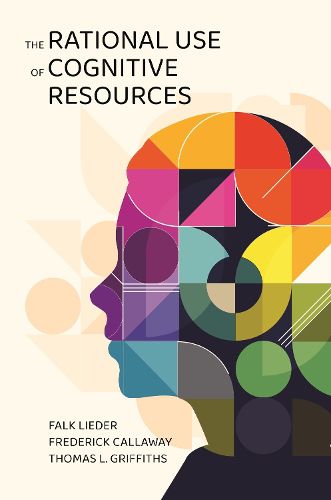Readings Newsletter
Become a Readings Member to make your shopping experience even easier.
Sign in or sign up for free!
You’re not far away from qualifying for FREE standard shipping within Australia
You’ve qualified for FREE standard shipping within Australia
The cart is loading…






A new approach to understanding irrational behavior that provides a framework for deriving new models of human cognition
What does it mean to act rationally? Mathematicians, economists, and statisticians have argued that a rational actor chooses actions that maximize their expected utility. And yet people routinely act in ways that violate this prescription. Our limited time and computational resources mean that it is often unrealistic to consider all options in order to choose the one that has the greatest utility. This book suggests a different approach to understanding irrational behavior: resource-rational analysis. By reframing questions of rational action in terms of how we should make the best use of our limited resources, the book offers a new take on fundamental questions at the heart of cognitive psychology, behavioral economics, and the design of artificial intelligence systems.
The book presents a formal framework for applying resource-rational analysis to understand and improve human behavior, a set of tools developed by the authors to make this easier, and examples of how they have used this approach to revisit classic questions about human cognition, pose new ones, and enhance human rationality. The book will be a valuable resource for psychologists, economists, and philosophers as well as neuroscientists studying human brains and minds and computer scientists working to reproduce such systems in machines.
$9.00 standard shipping within Australia
FREE standard shipping within Australia for orders over $100.00
Express & International shipping calculated at checkout
A new approach to understanding irrational behavior that provides a framework for deriving new models of human cognition
What does it mean to act rationally? Mathematicians, economists, and statisticians have argued that a rational actor chooses actions that maximize their expected utility. And yet people routinely act in ways that violate this prescription. Our limited time and computational resources mean that it is often unrealistic to consider all options in order to choose the one that has the greatest utility. This book suggests a different approach to understanding irrational behavior: resource-rational analysis. By reframing questions of rational action in terms of how we should make the best use of our limited resources, the book offers a new take on fundamental questions at the heart of cognitive psychology, behavioral economics, and the design of artificial intelligence systems.
The book presents a formal framework for applying resource-rational analysis to understand and improve human behavior, a set of tools developed by the authors to make this easier, and examples of how they have used this approach to revisit classic questions about human cognition, pose new ones, and enhance human rationality. The book will be a valuable resource for psychologists, economists, and philosophers as well as neuroscientists studying human brains and minds and computer scientists working to reproduce such systems in machines.